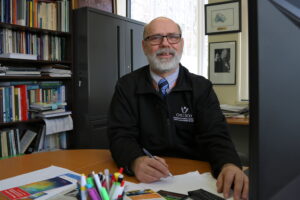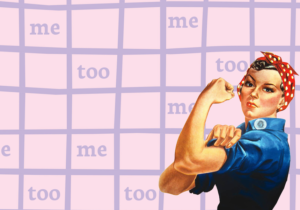
Johann Hari’s book,
God Save the Queen? is a pompous, mean-spirited, but mostly entertaining glance at the British monarchy and how the institution has negatively affected the personal lives of the British Royal Family. The author, a former (disgraced) journalist for the
New Statesman, the
Guardian, and many other publications, dissects the Royals and questions their ability to rule Britain and the Commonwealth.
Hari essentially believes the Royals are trapped inside a monstrous, destructive system. A gilded prison. Queen Elizabeth, Princess Margaret, Prince Charles, and all the rest have lived inside a greenhouse all their lives. This class barrier has disassociated the Windsor Corporation from the common people.
I’m a reluctant republican, but I agreed with Hari’s thesis about the Royals. The constitutional monarchy is a rotting organization and needs replacing. In the wake of Queen Elizabeth’s glamorous, opulent 60-year Diamond Jubilee celebration, I believe it’s time for Canada to part ways with the monarchy.
This article isn’t a declaration of anti-British sentiment. I love the British Isles. England will always be one of my favourite countries. I’ve travelled to Great Britain twice. I’ve lived in Lancashire for a short time and found England’s green, rolling countryside to be inspirational. The British people are warm, generous, and polite to a fault. The country’s citizens have produced mountains of great literature, popular music, art, design, and countless technical innovations.
It’s too bad Canada’s monarchy has to be British – this makes the declaration for separation from the Royals all the more difficult.
Some Britons argue the Queen’s family and their lifestyles drawn in loads of tourist pounds. The Royals also assist with many charities. In addition, monarchists believe the Windsor Royalty adds spice to this already terrific, but rainy island nation. Well, Canadians should never be smug about the weather. Anyways, the Windsors own several historical properties of note – all of them looking fantastic on chocolate boxes and postcards. The Royals also provide the media with heaps of great gossip stories. In practical terms, the Royals are meant to provide a constitutional safeguard.
In many ways, monarchists throughout the Commonwealth have a strong argument for keeping things as they are.
Many English-speaking Canadians, a minority of French Canadians, and an even slim portion of the First Nations peoples take pride in Canada’s Royal link. I’m sure many Canadians of Asian, African, Latin American, and East European descent believe this union is an obscure remnant of post colonialism. However, I know there are many Royalist Canadians who originate from the developing world.
A certain historical mystique exists with the Windsor family, which sometimes makes Americans jealous about our country’s monarchy. A few southern neighbours believe the Kennedy family is a Democratic version of the Royals. I’ve never heard of any Republicans referring to the Bush family as American royalty, but George W. Bush is rumoured to be related to the Queen. In all honesty, this seems too good to be true.
Although national polls indicate a preference for small ‘r’ republicanism, the Queen is embedded into our nation’s consciousness. The title ‘Royal’ prefixes the names of many Canadian legal bodies, acts, and laws. She smiles on our stamps and money. Her portrait hangs inside almost every government building. When I joined the Canadian military in 1988, I swore my allegiance to Her Majesty.
Queen Elizabeth II’s image is omnipresent in Canada. The Queen’s popularity in our diverse country is monumental and transcendent. The argument against small ‘r’ republicanism often surpasses Canadian political ideology. Most of our nation’s monarchists exist on the right, but there are many Liberals, New Democrats, and Greens who support the Queen. Of course, every Canadian knows where the Bloc Quebecois stands on this issue. But French monarchists, although a rare breed, do exist.
If Prince Charles takes the throne, the monarchy’s future will face a significant challenge in Great Britain and abroad. However, the Prince of Wales’ recent visit to Canada with Camilla seemed to go quite well.
Prince William, the next-in-line, appears to be a more popular choice for Canadians. Prince William has expressed a disinterest in joining the family firm, but I could never predict on whether William plans to abdicate in the future. Hari stated this as a probable notion in a previous article in the
New Statesman in January 2002. The journalist also expounds on this idea in his book, but Prince William’s life is too distorted and overexposed in the worldwide media.
We never seem to actually understand much about who Royal family really are, because of their incessant appearances in the television and the tabloids – surely the oddest paradox.
Many Canadians argue our country’s stability is based on Canadian Parliament’s constitutional monarchy system. Queen Elizabeth II, via the Governor General, is purposed to override any bad decisions made by our elected members. However, is this monarchy-clause a genuine democratic safeguard? Should a Queen living overseas be allowed to reverse parliamentary bills introduced by our elected officials?
I don’t believe so.
If the monarchy goes, Canada shouldn’t necessarily adapt an American or French republican model of governance. A better Canadian system of government is another article, perhaps a book. However, I believe our regions and communities should have greater political power within a unifying social contract, and these semi-autonomous regions should exist without the Crown’s influence.
 Johann Hari’s book, God Save the Queen? is a pompous, mean-spirited, but mostly entertaining glance at the British monarchy and how the institution has negatively affected the personal lives of the British Royal Family. The author, a former (disgraced) journalist for the New Statesman, the Guardian, and many other publications, dissects the Royals and questions their ability to rule Britain and the Commonwealth.
Hari essentially believes the Royals are trapped inside a monstrous, destructive system. A gilded prison. Queen Elizabeth, Princess Margaret, Prince Charles, and all the rest have lived inside a greenhouse all their lives. This class barrier has disassociated the Windsor Corporation from the common people.
I’m a reluctant republican, but I agreed with Hari’s thesis about the Royals. The constitutional monarchy is a rotting organization and needs replacing. In the wake of Queen Elizabeth’s glamorous, opulent 60-year Diamond Jubilee celebration, I believe it’s time for Canada to part ways with the monarchy.
This article isn’t a declaration of anti-British sentiment. I love the British Isles. England will always be one of my favourite countries. I’ve travelled to Great Britain twice. I’ve lived in Lancashire for a short time and found England’s green, rolling countryside to be inspirational. The British people are warm, generous, and polite to a fault. The country’s citizens have produced mountains of great literature, popular music, art, design, and countless technical innovations.
It’s too bad Canada’s monarchy has to be British – this makes the declaration for separation from the Royals all the more difficult.
Some Britons argue the Queen’s family and their lifestyles drawn in loads of tourist pounds. The Royals also assist with many charities. In addition, monarchists believe the Windsor Royalty adds spice to this already terrific, but rainy island nation. Well, Canadians should never be smug about the weather. Anyways, the Windsors own several historical properties of note – all of them looking fantastic on chocolate boxes and postcards. The Royals also provide the media with heaps of great gossip stories. In practical terms, the Royals are meant to provide a constitutional safeguard.
In many ways, monarchists throughout the Commonwealth have a strong argument for keeping things as they are.
Many English-speaking Canadians, a minority of French Canadians, and an even slim portion of the First Nations peoples take pride in Canada’s Royal link. I’m sure many Canadians of Asian, African, Latin American, and East European descent believe this union is an obscure remnant of post colonialism. However, I know there are many Royalist Canadians who originate from the developing world.
A certain historical mystique exists with the Windsor family, which sometimes makes Americans jealous about our country’s monarchy. A few southern neighbours believe the Kennedy family is a Democratic version of the Royals. I’ve never heard of any Republicans referring to the Bush family as American royalty, but George W. Bush is rumoured to be related to the Queen. In all honesty, this seems too good to be true.
Although national polls indicate a preference for small ‘r’ republicanism, the Queen is embedded into our nation’s consciousness. The title ‘Royal’ prefixes the names of many Canadian legal bodies, acts, and laws. She smiles on our stamps and money. Her portrait hangs inside almost every government building. When I joined the Canadian military in 1988, I swore my allegiance to Her Majesty.
Queen Elizabeth II’s image is omnipresent in Canada. The Queen’s popularity in our diverse country is monumental and transcendent. The argument against small ‘r’ republicanism often surpasses Canadian political ideology. Most of our nation’s monarchists exist on the right, but there are many Liberals, New Democrats, and Greens who support the Queen. Of course, every Canadian knows where the Bloc Quebecois stands on this issue. But French monarchists, although a rare breed, do exist.
If Prince Charles takes the throne, the monarchy’s future will face a significant challenge in Great Britain and abroad. However, the Prince of Wales’ recent visit to Canada with Camilla seemed to go quite well.
Prince William, the next-in-line, appears to be a more popular choice for Canadians. Prince William has expressed a disinterest in joining the family firm, but I could never predict on whether William plans to abdicate in the future. Hari stated this as a probable notion in a previous article in the New Statesman in January 2002. The journalist also expounds on this idea in his book, but Prince William’s life is too distorted and overexposed in the worldwide media.
We never seem to actually understand much about who Royal family really are, because of their incessant appearances in the television and the tabloids – surely the oddest paradox.
Many Canadians argue our country’s stability is based on Canadian Parliament’s constitutional monarchy system. Queen Elizabeth II, via the Governor General, is purposed to override any bad decisions made by our elected members. However, is this monarchy-clause a genuine democratic safeguard? Should a Queen living overseas be allowed to reverse parliamentary bills introduced by our elected officials?
I don’t believe so.
If the monarchy goes, Canada shouldn’t necessarily adapt an American or French republican model of governance. A better Canadian system of government is another article, perhaps a book. However, I believe our regions and communities should have greater political power within a unifying social contract, and these semi-autonomous regions should exist without the Crown’s influence.
Johann Hari’s book, God Save the Queen? is a pompous, mean-spirited, but mostly entertaining glance at the British monarchy and how the institution has negatively affected the personal lives of the British Royal Family. The author, a former (disgraced) journalist for the New Statesman, the Guardian, and many other publications, dissects the Royals and questions their ability to rule Britain and the Commonwealth.
Hari essentially believes the Royals are trapped inside a monstrous, destructive system. A gilded prison. Queen Elizabeth, Princess Margaret, Prince Charles, and all the rest have lived inside a greenhouse all their lives. This class barrier has disassociated the Windsor Corporation from the common people.
I’m a reluctant republican, but I agreed with Hari’s thesis about the Royals. The constitutional monarchy is a rotting organization and needs replacing. In the wake of Queen Elizabeth’s glamorous, opulent 60-year Diamond Jubilee celebration, I believe it’s time for Canada to part ways with the monarchy.
This article isn’t a declaration of anti-British sentiment. I love the British Isles. England will always be one of my favourite countries. I’ve travelled to Great Britain twice. I’ve lived in Lancashire for a short time and found England’s green, rolling countryside to be inspirational. The British people are warm, generous, and polite to a fault. The country’s citizens have produced mountains of great literature, popular music, art, design, and countless technical innovations.
It’s too bad Canada’s monarchy has to be British – this makes the declaration for separation from the Royals all the more difficult.
Some Britons argue the Queen’s family and their lifestyles drawn in loads of tourist pounds. The Royals also assist with many charities. In addition, monarchists believe the Windsor Royalty adds spice to this already terrific, but rainy island nation. Well, Canadians should never be smug about the weather. Anyways, the Windsors own several historical properties of note – all of them looking fantastic on chocolate boxes and postcards. The Royals also provide the media with heaps of great gossip stories. In practical terms, the Royals are meant to provide a constitutional safeguard.
In many ways, monarchists throughout the Commonwealth have a strong argument for keeping things as they are.
Many English-speaking Canadians, a minority of French Canadians, and an even slim portion of the First Nations peoples take pride in Canada’s Royal link. I’m sure many Canadians of Asian, African, Latin American, and East European descent believe this union is an obscure remnant of post colonialism. However, I know there are many Royalist Canadians who originate from the developing world.
A certain historical mystique exists with the Windsor family, which sometimes makes Americans jealous about our country’s monarchy. A few southern neighbours believe the Kennedy family is a Democratic version of the Royals. I’ve never heard of any Republicans referring to the Bush family as American royalty, but George W. Bush is rumoured to be related to the Queen. In all honesty, this seems too good to be true.
Although national polls indicate a preference for small ‘r’ republicanism, the Queen is embedded into our nation’s consciousness. The title ‘Royal’ prefixes the names of many Canadian legal bodies, acts, and laws. She smiles on our stamps and money. Her portrait hangs inside almost every government building. When I joined the Canadian military in 1988, I swore my allegiance to Her Majesty.
Queen Elizabeth II’s image is omnipresent in Canada. The Queen’s popularity in our diverse country is monumental and transcendent. The argument against small ‘r’ republicanism often surpasses Canadian political ideology. Most of our nation’s monarchists exist on the right, but there are many Liberals, New Democrats, and Greens who support the Queen. Of course, every Canadian knows where the Bloc Quebecois stands on this issue. But French monarchists, although a rare breed, do exist.
If Prince Charles takes the throne, the monarchy’s future will face a significant challenge in Great Britain and abroad. However, the Prince of Wales’ recent visit to Canada with Camilla seemed to go quite well.
Prince William, the next-in-line, appears to be a more popular choice for Canadians. Prince William has expressed a disinterest in joining the family firm, but I could never predict on whether William plans to abdicate in the future. Hari stated this as a probable notion in a previous article in the New Statesman in January 2002. The journalist also expounds on this idea in his book, but Prince William’s life is too distorted and overexposed in the worldwide media.
We never seem to actually understand much about who Royal family really are, because of their incessant appearances in the television and the tabloids – surely the oddest paradox.
Many Canadians argue our country’s stability is based on Canadian Parliament’s constitutional monarchy system. Queen Elizabeth II, via the Governor General, is purposed to override any bad decisions made by our elected members. However, is this monarchy-clause a genuine democratic safeguard? Should a Queen living overseas be allowed to reverse parliamentary bills introduced by our elected officials?
I don’t believe so.
If the monarchy goes, Canada shouldn’t necessarily adapt an American or French republican model of governance. A better Canadian system of government is another article, perhaps a book. However, I believe our regions and communities should have greater political power within a unifying social contract, and these semi-autonomous regions should exist without the Crown’s influence. 








